The Meanings of Refugee Status
Hamid, 28 years old, was born and raised in a Palestinian refugee camp in Syria. He has a wide smile befitting someone who studied odontology as he did. As the conflict in Syria escalated, Hamid’s family decided he had to flee. He had already lost one brother to the war. The Brazilian consulate offered Hamid a humanitarian visa so he could come and seek asylum, one of thousands that Brazil extended to Syrians. Hamid got a plane ticket, and he flew to Rio de Janeiro. A few months after filing his asylum claim, he was legally recognized as a refugee in Brazil.
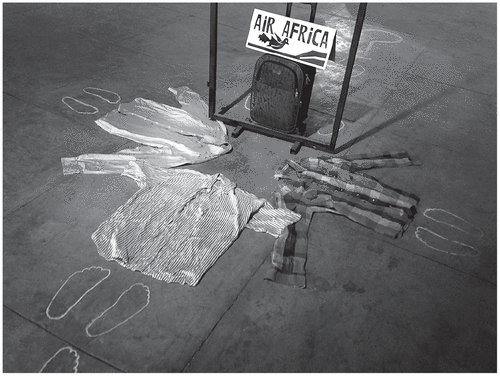
Two years later, Hamid and I sit out on an apartment balcony in Rio. We smoke double-apple hookah, his favorite, in between sips of coffee. “What, if anything,” I ask, “has changed about your life since you were recognized as a refugee?” He folds one hand in the other, clears his throat, and answers, “Nothing changed.” He continues, “Refugee status [did] not make anything for me.” “Not refugee, not I am not refugee,” Hamid says, “It’s the same.”
Refugee status is often imagined as the holy grail of legal migratory statuses. However, for Hamid, it feels naught. As the political and social entitlements of asylum vary across the globe, so too does its resonance. The legal processes and social hierarchies that asylum seekers and refugees navigate as they seek safe haven shape how they understand that status and their sense of belonging. In Brazil, formal policies of legal inclusion—coupled with a lack of protection from economic precarity, social exclusion, and anti-Black racism in daily life—lessen the objective impact and subjective weight of asylum. Because refugee status changes relatively little in Brazil, for good and for ill, it can fail to transform how those who seek and obtain it understand their new lives. Rather than a universal given, the meaning of refugee status depends on the rights, supports, and precarity it entails.
Refugees in Global Context
Enshrined in international law, a refugee is defined as someone who, due to a well-founded fear of persecution, is unable or unwilling to avail themselves of the protection of their country. While its boundaries are highly contested, refugee status is seen as demonstrating an individual belongs to an exceptionally vulnerable and deserving category that sets them apart from other migrants. An asylum seeker is someone whose claim of refugee status has yet to be processed. In 2019, there were 4.2 million asylum claims pending worldwide—more than any previous year on record.
Throughout the Global North, because refugee status is difficult to obtain and provides formidable rights and protections, asylum is often seen as the ultimate panacea. In the United States, migratory status is a primary axis of social stratification— a vital category that determines the distribution of rights and resources, which drives how immigrants make sense of themselves and their host society. Because legal status is directly tied to protection and precarity in such contexts, a shift in status often produces a profound metamorphosis for its bearer.
The relative rights and benefits entailed in refugee status matter for how those who apply envision it. Internationally, refugee status protects someone from being forced to return to their country. At its most basic, it entails simply the right to stay. In the Global North, this right is under grave threat. Winning an asylum claim in countries like the United States can save you from deportation proceedings. In the U.S., fear of deportation haunts many as they await decisions on their cases.
However, the concessions and hurdles of refugee status, its difficulty and rarity, are not global universals. How refugee status operates in Brazil unsettles normative assumptions born in the Global North about how asylum works and what it does.
While most media and scholarly attention on asylum seekers and refugees focuses on Europe and North America, 85 percent of refugees are in the Global South. Seventy-three percent of those forcibly displaced abroad find themselves in a neighboring country, not the Global North. Top refugee host countries include Turkey, Pakistan, and Uganda. In recent years, Brazil has emerged as a major destination for those forcibly displaced in Latin America and beyond. In 2018, Brazil was the sixth-largest recipient of asylum claims globally, with over 150,000 pending asylum claims—a 17,000 percent increase in under a decade.
Open Arms in Brazil
Asylum and refugee policies in Brazil diverge starkly from the ever-increasingly draconian immigration regimes seen throughout the Global North. “To Brazil,” Hamid says, “I arrived with great ease.” “They like us,” he tells me, “they said for us, ‘Always welcome.’”
Brazil has one of the highest asylum grant rates in Latin America. It approved roughly 50 percent of claims adjudicated in the last decade, reaching over 90 percent in some years. In 2016, Brazil hosted refugees from 81 countries. Brazil has been at the forefront of Latin America’s response to mass forced displacement from Syria and Venezuela. While countries in the Global North denied access to Syrian refugees, Brazil instituted an open-door policy in 2013, becoming the first country in the Americas to do so. Within the year, Syrians went from a nonexistent refugee community in Brazil to its largest at that time. In the last year, Brazil has recognized roughly 37,000 Venezuelans, more than any other country in Latin America, on a group rather than individual basis. The UN Refugee Agency hailed it as a milestone, urging other countries to follow suit.
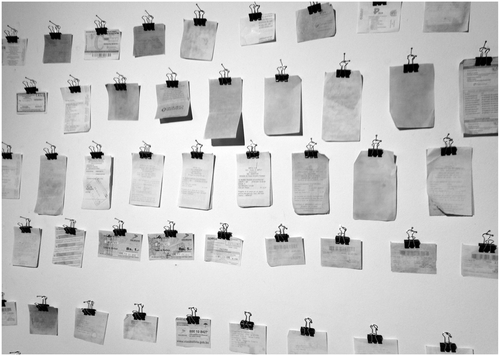
Brazil is seen as an exemplary case of contemporary refugee protection—a pioneering model for the region and beyond. In 1997, Brazil passed the first comprehensive refugee law in South America, amid a human-rights-driven legislative trend after the end of the military dictatorship. Brazil’s Refugee Act defines a refugee more expansively than seen internationally, providing asylum also for those fleeing grave and generalized human rights violations. It did so in the spirit of the regional 1984 Cartagena Declaration, itself influenced by the Organization of African Unity’s 1969 Refugee Convention. Brazil is a regional leader in refugee resettlement as well, resettling more refugees than any other country in the region, primarily Colombians.
Unlike countries in the Global North, Brazil, like other South American countries, does not detain or deport immigrants. Because Brazil does not have a deportation regime, the meanings and consequences of asylum differ dramatically. For asylum seekers in Brazil, refugee status does not carry with it the weight of whether they may stay. Because there is no mass deportation policy, they do not fear the violence of territorial expulsion. In contrast to the U.S., the legal apparatus in Brazil does not produce such forms of migrant precarity.
Beyond protection from forcible return, the relative entitlements of refugee status also vary significantly across countries. In Brazil, key rights are obtained by seeking asylum—rather than only after recognition. Brazil’s Refugee Act provides—for both asylum seekers and refugees—the right to reside, work, and move freely in Brazil, as well as equal access to public health, education, and social assistance programs. “They receive us very well,” Michele, a late-40s Congolese refugee, declares. “Brazil greets us with open arms.”
Rights Without Resources
Valeria, a Colombian asylum seeker, waits outside at the Refugee Center in Rio de Janeiro while I check the status of her asylum claim. For 15 months, I shadowed asylum officials in Rio and assisted asylum seekers and refugees from over 45 countries with their claims. Pulling up the national database, I discover her claim was approved. As I tell Valeria she has been recognized, her expression remains unchanged. Unenthused, she matter-of-factly returns to reading her book. For Valeria, refugee status is not a precious concession. It carries little weight. Indeed, it feels hardly notable.
Others share her indifference. When Hamid found out the state had approved his asylum claim, he says: “For me, it was nothing important.” For those sure they will be recognized, obtaining refugee status does not weigh on their minds. As Hamid awaited his decision, he felt neither anxiety nor worry.
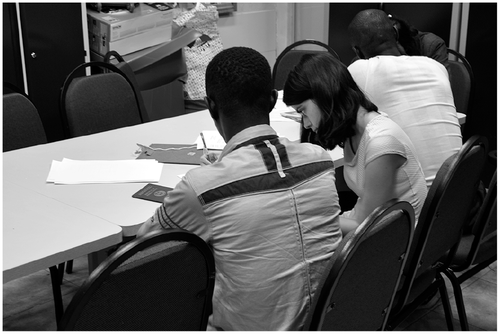
He did not await the news with fear or angst. “From when I come [to] Brazil to now, everything is easy for me about the process.” Hamid was not elated when he was recognized because it was unsurprising. As refugee status did not feel in doubt for Hamid, it was not coveted by him. When it seems certain, it is not anxiously awaited. A sense of certainty subdues the impact and affects the meaning of recognition.
The relationship between status and rights also impacts the weight of asylum. Hamid started working before he obtained refugee status, as was his legal right. In contrast, an asylum seeker’s right to work is expressly denied or subject to authorization in countries like the U.S., the U.K., Canada, and Germany. Because such rights are not specific to refugee status under Brazil’s policies, asylum can feel moot to those who seek and obtain it. Refugee status, from Hamid’s point of view, changes nothing. In this, he is not alone. When I ask Michele what changed in her life after recognition, she responds: “It is the same…for me, it is the same.” Everything she has now, Michele reflects, she had as an asylum seeker.
I saw this apathy as well amongst asylum seekers still awaiting the decision on their claims. We might expect such disinterest to be a product of disenchantment after the fact, leaving asylum seekers highly anticipatory as they wait. I did not find this to be the case. In his early 30s, Nizar is a Syrian asylum seeker with a widow’s peak and black-rimmed glasses. Nothing about the possibility of refugee status excites him. Others echo this sentiment. Amira is a 25-year-old Syrian asylum seeker and teacher with a warm deep voice and loose shoulder-length curls. I ask if she looks forward to anything about being recognized. She laughs at my question. “No.” Neither has the illusion that asylum has transformative powers.
Nor do rejected asylum seekers necessarily lament the status denied them. Those rejected have the right to appeal and, as they wait for the government to process their second petition, they have the same rights as they did as an asylum seeker. Denial does not lead to political exclusion. While the subsequent denial of an appeal would legally push the applicant into an irregular status, as of 2016, Brazil had not adjudicated a single appeal in over three years.
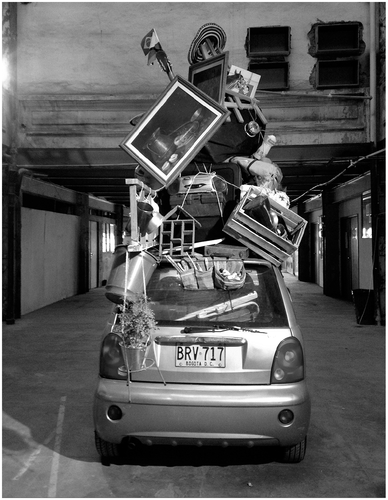
Such rights, however, come with little support. While Hamid appreciates all Brazil has done for him, he finds it deeply unsatisfactory to the extent that it feels insignificant. “The government doesn’t help,” Hamid says, “government does nothing.” Though the government facilitated his path to Brazil, granted him a humanitarian visa, and sped through his asylum claim, crucial milestones still elude him. Hamid has been unable to return to university to complete his odontology degree, his studies interrupted when he fled Syria. Because its objective consequences feel meager, he is disinclined to think of asylum in positively transformative terms. “I depend on myself,” Hamid says. “We out from war, but here another war.” While the legal regime asylum seekers navigate impacts how they envision refugee status, so too do the social hierarchies they encounter.
Social Exclusion and Racialized Differences
In spite of its lauded policies, Brazil is far from an idyllic safe haven. Refugee status does not resolve the daily problems refugees face in Brazil. Legal recognition does not transform their social and economic lives. Asylum in itself does not take someone out of a precarious work situation, allow them to continue their education, find them safe and secure housing, or improve the quality of the public services to which they have access. After recognition, refugees continue to face economic precarity, racism, and social exclusion.
As Bianca, an asylum official, reflects: “What does [refugee status] resolve? I think it doesn’t resolve much.” She continues, “It is not going to make someone integrated into society in the way that I would like to be included if I were a refugee.” Sabrina, a lawyer at the Refugee Center, similarly muses: “What protection does a refugee receive relative to a migrant, for example, in reality? It doesn’t make much difference.” Elaborating, she notes: “Refugee protection in Brazil doesn’t add hardly anything.”
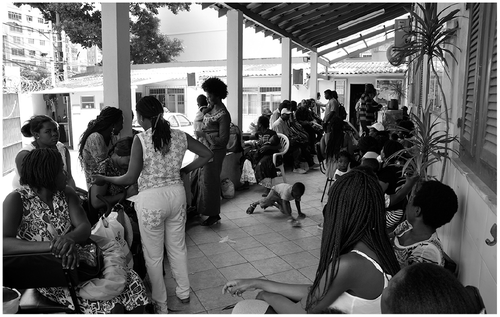
In such legal contexts of reception, refugee perceptions and experiences can be more profoundly configured by the broader realities in which they unfold. “There is a tension,” notes Lucas, a lawyer at the Refugee Center, “between the policies for refugees and the realities of poverty in Rio.” What is salient—for asylum seekers and refugees like Amira, Hamid, and Michele—is not asylum. Memories of the process are often blurred or nonexistent. Michele cannot remember when she applied for or obtained asylum. While Amira does not remember when she applied for asylum, she beams as she tells me when she started her job: March 21, “I remember the day.” Questions of employment, housing, education, and healthcare figure more prominently in their thoughts. Their minds are preoccupied by other aspects of this new life.
The meaning of refugee status and what drives such indifference is also racialized. Racially understood as White in Brazil, the government encouraged Syrian refugee migration to Brazil in ways not seen with any other refugee group. While Syrian applicants are not alone in their feelings of ease before the decision, not all are so lucky. Hamid is conscious that the experiences of other asylum seekers differ from his own. “For another person, it’s long time,” Hamid reflects. It makes them “nervous,” “tired” and “they cry to get it.” While recognition rates and wait times vary by country, Black asylum seekers more likely have their applications doubted and delayed. The top five countries and recognition rates, in 2016, were Syria (100 percent), the Democratic Republic of the Congo (86 percent), Pakistan (75 percent), Ghana (18 percent), Nigeria (18 percent), and Guinea-Bissau (3 percent). While most Congolese claims are recognized, they wait double the time Syrians do for the same outcome.

In Nigeria, Kemi was a freelance writer and human rights journalist. After publishing a piece about gay rights, she was persecuted by Boko Haram and her home burned down. She got a tourist visa and fled to Brazil while her husband stayed, himself internally displaced. Years pass before he joins her in Brazil. Yet Kemi cannot remember whether she was recognized before, or after, they finally reunited. Obtaining refugee status is not an event that marks a sharp divide in her mind. It does not figure formatively in how she charts her life. Though most Nigerian claims are denied, asylum failed to mark a defining moment for Kemi because it changed little beyond her status. Years after recognition, Kemi still has days where she goes hungry, working when she can as a hairdresser. While White refugees like Hamid wish for more from their lives, such difficulties are even more acute for Africans.
Yornella is a Congolese refugee in her late 30s. For Yornella, still “nothing is easy” after recognition. In the DRC, Yornella worked at an NGO assisting survivors of sexual violence; in Brazil, she found work washing dishes. Yornella does not feel at home in the country that provided her safe haven. “I am a foreigner. This is not my country. I am never going to be Brazilian like them. In my country, I do not have the limits that I have here. Here there are many limits. It is difficult.” “You can’t rent a home, an apartment on your own.” She continues, “I rent with my sister and another refugee. We are three.” “We share a room. It’s difficult, isn’t it?” An asylum seeker’s life is not easy, but neither does it become so after refugee status.
A pernicious anti-Black racism, in particular, structures and exacerbates the harsh realities unresolved by recognition. “Brazil has a lot of great things,” Frederic, a Congolese refugee, shares, “but it also has bad things, like racism, primarily against Africans.” In Brazil, refugees “discover a racist country,” notes Adriana, the Refugee Center Coordinator. In the words of Congolese refugee Chadrack: “I never expected the life of a telenovela, but here they only offer us manual labor.” Michele was a fashion designer before she fled. In Rio, she found work as a janitor in the train station. It was the first time she had ever worked in cleaning. “Unfortunately,” Adriana continues, “a difference between Black and White refugees exists.” For Black refugees, apathy about asylum emerges principally from their continued struggles against racialized forms of social and economic exclusion.
Neither Universal, Nor Panacea
The perceptions and experiences of Hamid and others push us to reconsider what asylum necessarily means and provides for those who receive it. For some, refugee status is not seen as producing a pivotal rupture in their lives. How refugees envision that status in Brazil troubles its presumed meanings, and points to how and why those meanings can vary.
As anthropologist Liisa Malkki attests, there is a tendency to universalize “the refugee” as a singular, generic figure. Turning to Brazil underscores how different refugee conditions and experiences can and do look. Attending to legal regimes of reception that diverge radically from the draconian contexts seen in the Global North unsettles the seeming self-evidence of exclusion. And it brings to the fore how immigration apparatuses structure the significance of refugee status.
The meaning of refugee status does not exist outside of society; it is dependent upon it. Whether refugee status is transformative depends on the broader legal and social contexts of reception where the refugee finds safe haven. What matters is not refugee status, but what it does—and does not—do. Refugee status is neither universal, nor panacea.
Recommended reading
- Arar, Rawan. “The New Grand Compromise: How Syrian Refugees Changed the Stakes in the Global Refugee Assistance Regime.” Middle East Law and Governance (2017) 9(3):298–312. Google Scholar | Crossref
- Brown, Hana. “Refugees, Rights, and Race: How Legal Status Shapes Liberian Immigrants’ Relationship with the State.” Social Problems (2011) 58(1):144–163. Google Scholar | Crossref
- Malkki, Liisa. Purity and Exile: Violence, Memory, and National Cosmology Among Hutu Refugees in Tanzania (University of Chicago Press, 1995). Google Scholar | Crossref
- Pasquetti, Silvia. “Subordination and dispositions: Palestinians’ differing sense of injustice, politics, and morality.” Theory and Society (2015) 44(1):1–31. Google Scholar | Crossref
- Tang, Eric. Unsettled: Cambodian Refugees in the NYC Hyper-ghetto (Temple University Press, 2015). Google Scholar
Katherine Jensen is an Assistant Professor in the Department of Sociology and International Studies Program at the University of Wisconsin-Madison. She studies race/racism, the state, and forced migration in the Americas, with a focus on Brazil.

